Pharmacology
Pharmacology is the study of how drugs interact with living organisms, including the mechanisms of drug action, the therapeutic and adverse effects of drugs, and the properties of drugs. It is a multidisciplinary field that combines knowledge from various scientific disciplines such as biochemistry, physiology, and molecular biology to understand how drugs work in the body.
Key Concepts in Pharmacology
- Drug Classification: Drugs are classified based on their chemical structure, mechanism of action, and therapeutic use. Understanding drug classification is important for identifying the properties and effects of different drugs.
- Drug Absorption, Distribution, Metabolism, and Excretion (ADME): The processes of drug ADME determine the concentration of a drug at its site of action, as well as its duration of action and potential for toxicity.
- Drug Targets: Drugs exert their effects by interacting with specific targets in the body, such as receptors, enzymes, or ion channels. Understanding drug targets helps in predicting the pharmacological effects of drugs.
- Drug Interactions: Drugs can interact with each other, as well as with food and other substances, leading to altered pharmacological effects. Knowledge of drug interactions is crucial for prescribing medications safely.
- Therapeutic and Toxic Effects: Pharmacology involves studying the desired therapeutic effects of drugs, as well as their potential adverse effects and toxicity. This knowledge guides the appropriate use and monitoring of drug therapy.
Study Guide for Pharmacology
Here are some tips for studying pharmacology effectively:
- Understand the Basics: Start by understanding the fundamental concepts in pharmacology, such as drug classification, ADME processes, and drug targets.
- Use Mnemonics: Mnemonics can help you remember drug names, classifications, and side effects. Create your own mnemonics or use existing ones to aid in memorization.
- Practice Drug Calculations: Pharmacology often involves dosage calculations and understanding drug concentrations. Practice solving drug calculation problems to strengthen your quantitative skills.
- Review Case Studies: Real-life case studies can provide practical insights into the use of drugs in clinical settings. Analyze case studies to understand the rationale behind drug therapy decisions.
- Stay Updated: Pharmacology is a dynamic field with new drugs and research developments. Stay updated with the latest pharmacological advancements through reputable sources.
By mastering the principles of pharmacology, you will gain a deeper understanding of how drugs interact with the body and how to use them safely and effectively in clinical practice.
.◂Biology Worksheets and Study Guides High School. Genetics and heredity II
Worksheet/Answer key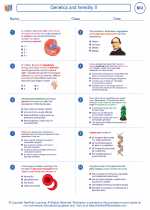 Genetics and heredity II
Genetics and heredity II  Worksheet/Answer key
Worksheet/Answer key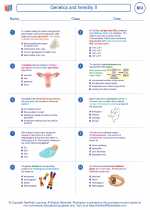 Genetics and heredity II
Genetics and heredity II  Worksheet/Answer key
Worksheet/Answer key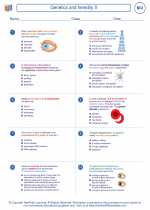 Genetics and heredity II
Genetics and heredity II  Vocabulary/Answer key
Vocabulary/Answer key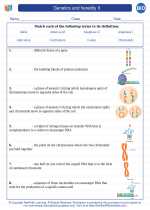 Genetics and heredity II
Genetics and heredity II  Vocabulary/Answer key
Vocabulary/Answer key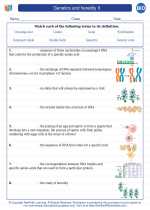 Genetics and heredity II
Genetics and heredity II  Vocabulary/Answer key
Vocabulary/Answer key Genetics and heredity II
Genetics and heredity II  Vocabulary/Answer key
Vocabulary/Answer key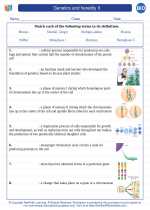 Genetics and heredity II
Genetics and heredity II  Vocabulary/Answer key
Vocabulary/Answer key Genetics and heredity II
Genetics and heredity II  Vocabulary/Answer key
Vocabulary/Answer key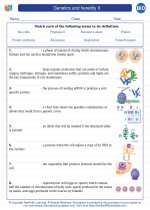 Genetics and heredity II
Genetics and heredity II  Vocabulary/Answer key
Vocabulary/Answer key Genetics and heredity II
Genetics and heredity II 

 Worksheet/Answer key
Worksheet/Answer key
 Worksheet/Answer key
Worksheet/Answer key
 Vocabulary/Answer key
Vocabulary/Answer key
 Vocabulary/Answer key
Vocabulary/Answer key
 Vocabulary/Answer key
Vocabulary/Answer key
 Vocabulary/Answer key
Vocabulary/Answer key
 Vocabulary/Answer key
Vocabulary/Answer key
 Vocabulary/Answer key
Vocabulary/Answer key
 Vocabulary/Answer key
Vocabulary/Answer key

The resources above cover the following skills:
LIFE SCIENCE (NGSS)
Heredity: Inheritance and Variation of Traits
Students who demonstrate understanding can:
Ask questions to clarify relationships about the role of DNA and chromosomes in coding the instructions for characteristic traits passed from parents to offspring.